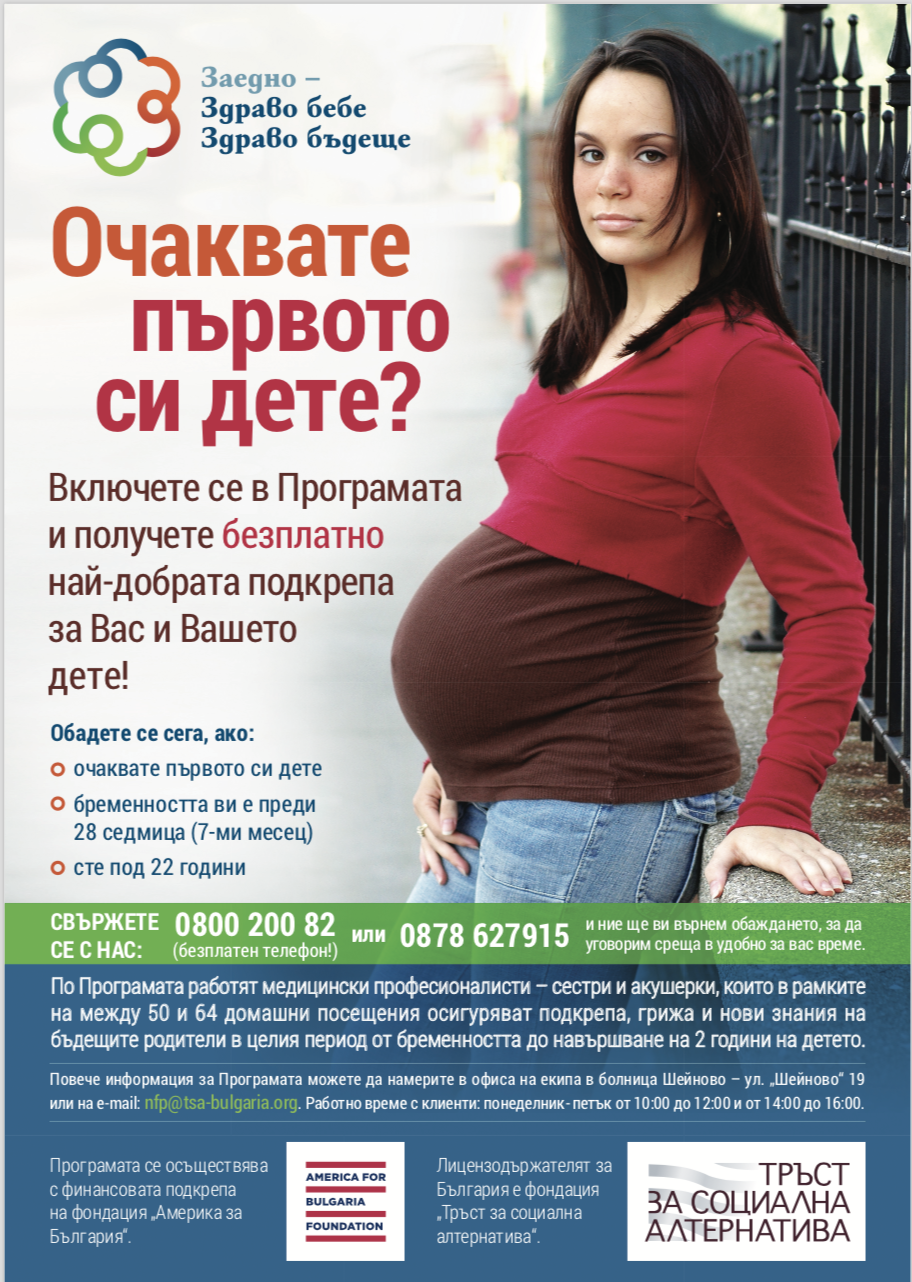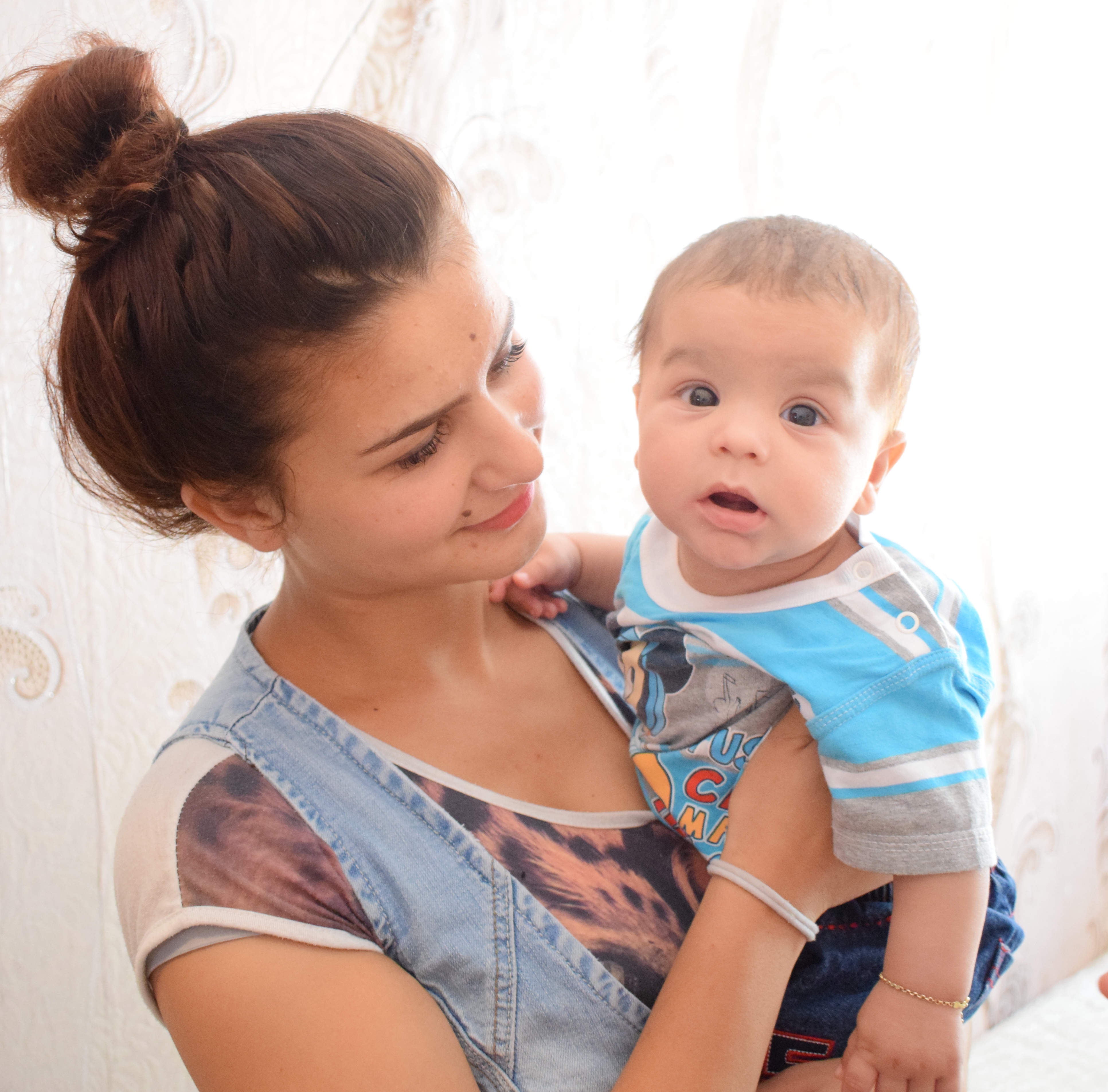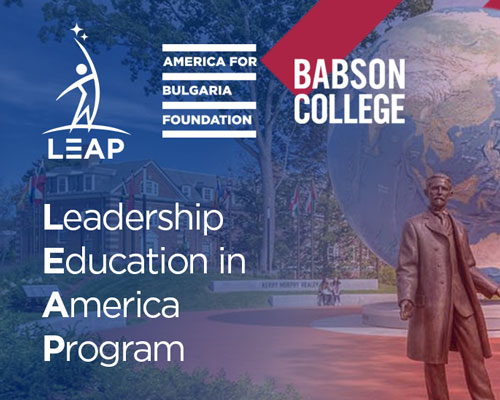 Nadia was only 17 years old and pregnant. She lived in a small makeshift home with one room and a kitchen along with her husband, father-in-law, and another relative. The house had no bathroom except for an outhouse in the yard. Electricity was spotty and sometimes went out for days. Though Nadia’s home wanted for many things, the one thing it did not lack was love, and she maintained a strong hope for a better future for her child. So, when Nadia learned about a program that matches nurses with first-time mothers, she eagerly enrolled. She has been an active participant ever since.
Nadia was only 17 years old and pregnant. She lived in a small makeshift home with one room and a kitchen along with her husband, father-in-law, and another relative. The house had no bathroom except for an outhouse in the yard. Electricity was spotty and sometimes went out for days. Though Nadia’s home wanted for many things, the one thing it did not lack was love, and she maintained a strong hope for a better future for her child. So, when Nadia learned about a program that matches nurses with first-time mothers, she eagerly enrolled. She has been an active participant ever since.
The Nurse Family Partnership (NFP) program follows a careful script of two and a half years of regular home visits. The nurse guides mothers, fathers, and other family members through conversations about what to expect from pregnancy, how to prepare for and care for their infant, and how to interact with and stimulate the child. The nurse also mentors the mother as she thinks about her own future after the birth of her child.
Nadia is one of 600 parents and infants who will receive support from home visitors in Sofia and Plovdiv as part of a pilot to test the NFP in Bulgaria. The Trust for Social Achievement is the first recipient of a license to implement the program in Eastern Europe and since 2016 has paired specially trained nurses with first-time mothers in Roma neighborhoods in Sofia. Home visits in Plovdiv will commence in the fall.
For nurse and mother to develop a bond and the nurse’s health recommendations to have an impact, mothers have to enroll in the program up to the 28th gestation week, a requirement that proved to be a challenge to identifying potential participants at first. So, to spread the word about the program, TSA staff approached young women in the streets and prepared special gift packages to give to brides and mothers-in-law at weddings.
Two years on, these efforts are paying off. Moreover, word-of-mouth recommendations have done a great deal to attract new participants. One mother shares, “My nurse gives me a feeling of security and calmness. I am not worried about anything. She helped me to find a gynecologist and prescription medicine.” And another tells us, “Initially I was indifferent, but now I cannot wait for my nurse’s visit. I cannot wait to share with her.”
Nadia met regularly with her nurse. When her baby was born in the 40th gestation week at 6.8 pounds, she was already off to a great start. Her nurse home visitor shared that “[the baby] is very lucky—her mother’s innate curiosity, responsibility, and willingness to alter her circumstances incentivized her to take advantage of the opportunity that the NFP provides.”
 At one year old, the baby continued to develop normally for her age. While many infants in her neighborhood might be given sugar water, cow milk, or other substitutions, Nadia’s baby was given only breastmilk and formula during her first five months. She was introduced to solid foods properly, in line with guidance provided by her nurse home visitor. She is taken to regular checkups with her pediatrician. Her mother interacts and actively plays with her, and they often read children’s books together. Nadia also does a better job taking care of herself, resisting tobacco use and trying to eat as healthily as possible in order to avoid the rampant anemia affecting women in her community.
At one year old, the baby continued to develop normally for her age. While many infants in her neighborhood might be given sugar water, cow milk, or other substitutions, Nadia’s baby was given only breastmilk and formula during her first five months. She was introduced to solid foods properly, in line with guidance provided by her nurse home visitor. She is taken to regular checkups with her pediatrician. Her mother interacts and actively plays with her, and they often read children’s books together. Nadia also does a better job taking care of herself, resisting tobacco use and trying to eat as healthily as possible in order to avoid the rampant anemia affecting women in her community.
Nadia still faces many challenges. Her neighborhood is unregulated and overcrowded, filled with hastily built shacks, and poverty is rampant. Like more than half of the mothers participating in the program, her home lacks plumbing, running water, and an indoor toilet. Still, Nadia is seeking a better future for her child and, with the encouragement of her nurse, is looking for part-time employment. An eighth-grade dropout, she will not find it easy, but she is determined.
The NFP has been implemented in the United States for more than 40 years. Multiple studies underline the program’s success, demonstrating long-reaching impacts on both mother and child. Proven program results include improved school readiness, increased maternal employment, and greater intervals between births. Even though the program ends at age two, children at age 15 average half as many arrests, and mothers have spent 30 fewer months on welfare. The NFP has been successfully implemented in Canada, England, Scotland, Northern Ireland, and Australia. A pilot program is also in place in Norway.
Nadia is not the mother’s real name. The photo is of a different mother-and-child pair, also participating in the program.

